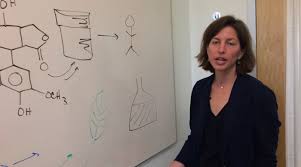Scientists Inject Genes Into Plants To Produce Cancer Drugs

Stanford Assistant Professor of Chemical Engineering Elizabeth Sattely and her graduate student Warren Lau published a study[1] the Science journal indicating they were able to isolate a plant’s genes that produces precursors to a commonly used chemotherapy drug called etoposide. They were able to inject the genes in another plant and the plant was able to produce the same precursors.
Himalayan plant called the mayapple produces the precursor used for making etoposide, which is used to treat lung cancer, testicular cancer, lymphoma, brain cancer, and leukemia. This issue with using the mayapple to secure the precursor is the mayapple takes a long time to grow so the supply has declining.
Most of the drugs we use come from plants because plants use their phytonutrients to fight disease and when we consume these plants the body uses their phytonutrients to fight cancer and other diseases in the body.
The mayapple produces the precursor used for making etoposide in response to its leaves being damaged, buy producing 30 proteins to protect and heal the plant.
All of the proteins were not used in the production of the precursor. Sattely and her assistant were able to isolate the proteins involved in producing the precursor and the genes responsible for the process.
They were able to inject the genes into the widely available and easy to grow Nicotiana benthamiana plant, a wild relative of tobacco, and the plant began producing the precursor.
Sattely hopes to be able to use yeast to produce the same precursors and bypass the use of plants.
[1] Six enzymes from mayapple that complete the biosynthetic pathway to the etoposide aglycone
Tags: anti-cancer, cancer awareness






